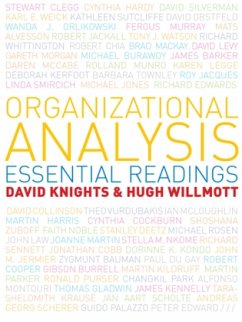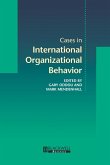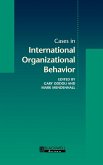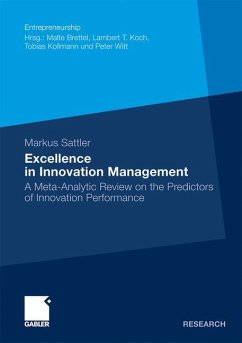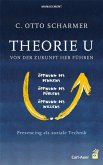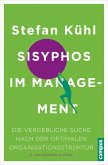53,99 €
inkl. MwSt.
Versandkostenfrei*
Liefertermin unbestimmt
Melden Sie sich
hier
hier
für den Produktalarm an, um über die Verfügbarkeit des Produkts informiert zu werden.

27 °P sammeln
- Broschiertes Buch
Comprehensively encompassing all topics within the area of organizational analysis, this book provides key readings which complement the study of organizations and organizational theory. David Knights and Hugh Willmott's carefully chosen readings are always thought-provoking and occasionally controversial. Classic articles as well as more recent pieces are included. As a whole, this book reflects the significant shifts emerging in organization theory today and will help familiarise the student with the competing paradigms central to the study of organizations.Subjects covered include…mehr
Andere Kunden interessierten sich auch für
![Cases Internatl Org Behavior P Cases Internatl Org Behavior P]() Cases Internatl Org Behavior P55,99 €
Cases Internatl Org Behavior P55,99 €![Cases Internatl Org Behavior C Cases Internatl Org Behavior C]() Cases Internatl Org Behavior C104,99 €
Cases Internatl Org Behavior C104,99 €![Excellence in Innovation Management Excellence in Innovation Management]() Markus SattlerExcellence in Innovation Management53,49 €
Markus SattlerExcellence in Innovation Management53,49 €![Theorie U - Von der Zukunft her führen Theorie U - Von der Zukunft her führen]() C. Otto ScharmerTheorie U - Von der Zukunft her führen59,00 €
C. Otto ScharmerTheorie U - Von der Zukunft her führen59,00 €![Essentials der Theorie U Essentials der Theorie U]() C. Otto ScharmerEssentials der Theorie U24,95 €
C. Otto ScharmerEssentials der Theorie U24,95 €![Das Unerwartete managen Das Unerwartete managen]() Karl E. WeickDas Unerwartete managen39,95 €
Karl E. WeickDas Unerwartete managen39,95 €![Sisyphos im Management Sisyphos im Management]() Stefan KühlSisyphos im Management24,90 €
Stefan KühlSisyphos im Management24,90 €-
-
-
Comprehensively encompassing all topics within the area of organizational analysis, this book provides key readings which complement the study of organizations and organizational theory. David Knights and Hugh Willmott's carefully chosen readings are always thought-provoking and occasionally controversial. Classic articles as well as more recent pieces are included. As a whole, this book reflects the significant shifts emerging in organization theory today and will help familiarise the student with the competing paradigms central to the study of organizations.Subjects covered include traditional topics such as leadership, strategy and human resource management, as well as emergent areas such as consumption, diversity, environment and globalization.Organizational Analysis will help students learn how to critically analyse original sources and will expand their knowledge of the subject. It is an ideal point of reference for further reading.A complete list of contributors to the essential readings is available at www.cengage.co.uk/knights.
Produktdetails
- Produktdetails
- Verlag: CL Excl Vocatn / Cengage Learning EMEA
- Erscheinungstermin: 17. September 2010
- Englisch
- Abmessung: 15mm x 190mm
- Gewicht: 640g
- ISBN-13: 9781408020173
- ISBN-10: 1408020173
- Artikelnr.: 27937744
- Herstellerkennzeichnung Die Herstellerinformationen sind derzeit nicht verfügbar.
- Verlag: CL Excl Vocatn / Cengage Learning EMEA
- Erscheinungstermin: 17. September 2010
- Englisch
- Abmessung: 15mm x 190mm
- Gewicht: 640g
- ISBN-13: 9781408020173
- ISBN-10: 1408020173
- Artikelnr.: 27937744
- Herstellerkennzeichnung Die Herstellerinformationen sind derzeit nicht verfügbar.
David Knights is Emeritus Professor, Lancaster University Management School, UK and a Professor at Oxford Brookes Business School, UK. He has held previous professorships at Exeter, Keele, Nottingham and Manchester Universities and visiting chairs at Gothenburg, Stockholm, Melbourne, Macquarie and Sydney Universities. He is a founding and continuing editor of the journal Gender, Work and Organisation. He is also the founder and continuing director of the Financial Services Research Forum that funds academic research and engages in critical debate on this sector with practitioners from corporations, government departments, regulators, consumer interests and voluntary bodies. He is the co-author of Organizational Analysis with H. Willmott (Cengage, 2010), and Gender, Work and Organization with E. Jeanes and P. Yancey-Martin (Blackwell/Wiley, 2010).
Hugh Wilmott is Professor of Management, Bayes Business School, City University London, UK and also holds the position of Professor of Organization Studies at Cardiff Business School, Wales. He has previously held professorial appointments at Cambridge (Judge Business School) and UMIST (now Manchester Business School), both UK, and visiting appointments at Copenhagen Business School, Denmark, University of Sydney, Australia, and Uppsala University, Sweden. He has published widely with over 20 books including Organization Theory and Design, and contributed to a range of management and social science journals. Hugh is a past Associate Editor on The Academy of Management Review and also served an equivalent role on the journal Organization. He has been a board member of numerous other journals including Administrative Science Quarterly, Journal of Management Studies, and Organization Studies.
Hugh Wilmott is Professor of Management, Bayes Business School, City University London, UK and also holds the position of Professor of Organization Studies at Cardiff Business School, Wales. He has previously held professorial appointments at Cambridge (Judge Business School) and UMIST (now Manchester Business School), both UK, and visiting appointments at Copenhagen Business School, Denmark, University of Sydney, Australia, and Uppsala University, Sweden. He has published widely with over 20 books including Organization Theory and Design, and contributed to a range of management and social science journals. Hugh is a past Associate Editor on The Academy of Management Review and also served an equivalent role on the journal Organization. He has been a board member of numerous other journals including Administrative Science Quarterly, Journal of Management Studies, and Organization Studies.
CHAPTER 1 ORGANIZATION THEORY 1Introduction 1Reading 1.1: Studying Organizations 4Reading 1.2: Accounts of Organizations: Organizational "Structures" and the Accounting Process 8Reading 1.3: Organization Theory as Critical Science? 11Discussion Questions 15Introduction Reference 15Recommended Further Readings 15CHAPTER 2 ORGANIZING 17Introduction 17Reading 2.1: Organizing and the Process of Sensemaking 20Reading 2.2: Knowing in Practice: Enacting a Collective Capability in Distributed Organizing 26Reading 2.3: Managers Divided: Organizational Politics and ITManagement 33Discussion Questions 37Recommended Further Readings 37CHAPTER 3 MANAGING 39Introduction 39Reading 3.1: Introducing Critical Theory to Management: Management in Critical Perspective 43Reading 3.2: Moral Mazes: The World of Corporate Managers 47Reading 3.3: How do Managers Think? Identity, Morality andPragmatism in Managerial Theory and Practice 49Reading 3.4: Rethinking Management and Managerial Work: Capitalism, Control and Subjectivity 53Discussion Questions 57Introduction References 57Recommended Further Readings 57CHAPTER 4 STRATEGY 59Introduction 59Reading 4.1: The Work of Strategizing and Organizing: For a Practice Perspective 62Reading 4.2: Post-processual Challenges for the Emerging Strategy-as- Practice Perspective: Discovering Strategy in the Logic of Practice 67Reading 4.3: Critical Approaches to Strategic Management 70Reading 4.4: Corporate Strategy, Organizations and Subjectivity: A Critique 78Discussion Questions 81Introduction References 81Recommended Further Readings 82CHAPTER 5 ORGANIZATIONAL CHANGE AND INNOVATION 83Introduction 83Reading 5.1: Manufacturing Consent 86Reading 5.2: Tightening the Iron Cage: Concertive Control in Self-Managing Teams 89Reading 5.3: Tales of the Unexpected: Strategic Management and Innovation and Dreams and Designs on Strategy: A Critical Analysis of TQM and Management Control 92Reading 5.4: Belonging on the Move: Market Rhetoric and the Future as Obligatory Passage 96Discussion Questions 102Introduction References 103Recommended Further Readings 103CHAPTER 6 HUMAN RESOURCE MANAGEMENT 105Introduction 105Reading 6.1: Human Resource Management - Rhetorics and Realities 109Reading 6.2: Planning for Personnel? HRM Reconsidered 112Reading 6.3: Foucault, Power/Knowledge, and its Relevance for Human Resource Management 117Reading 6.4: Developing a Tactical Approach to Engaging with 'Strategic' HRM 118Discussion Questions 121Introduction References 121Recommended Further Readings 121CHAPTER 7 LEADERSHIP AND SYMBOLISM 123Introduction 123Reading 7.1: Conceptualizing Leadership Processes: A Study of Senior Managers in a Financial Services Company 127Reading 7.2: Leadership and the Management of Meaning 132Reading 7.3: Symbols and Symbolic Behaviour: Definitions and Distinctions 136Discussion Questions 138Introduction References 138Recommended Further Readings 138CHAPTER 8 POWER, CONTROL AND RESISTANCE 141Introduction 141Reading 8.1: Contested Terrain: The Transformation of the Workplace in the 20th Century 145Reading 8.2: Management Lives: Power and Identity in Work Organizations 146Reading 8.3: Strategies of Resistance: Power, Knowledge and Subjectivity in the Workplace 150Reading 8.4: Foucault, Power, Resistance and All That 153Discussion Questions 157Introduction References 157Recommended Further Readings 157CHAPTER 9 TECHNOLOGY 159Introduction 159Reading 9.1: Introduction: Understanding Innovation, Organizational Change and Technology 161Reading 9.2: Caught in the Wheels: The High Cost of Being a Female Cog in the Male Machinery of Engineering 164Reading 9.3: In the Age of the Smart Machine: The Future of Work and Power 166Reading 9.4: Formal Organization as Representation: Remote Control, Displacement and Abbreviation 168Reading 9.5: Allegories of Creative Destruction: Technology and Organization in Narratives of the E-economy 170Discussion Questi
CHAPTER 1 ORGANIZATION THEORY 1Introduction 1Reading 1.1: Studying Organizations 4Reading 1.2: Accounts of Organizations: Organizational "Structures" and the Accounting Process 8Reading 1.3: Organization Theory as Critical Science? 11Discussion Questions 15Introduction Reference 15Recommended Further Readings 15CHAPTER 2 ORGANIZING 17Introduction 17Reading 2.1: Organizing and the Process of Sensemaking 20Reading 2.2: Knowing in Practice: Enacting a Collective Capability in Distributed Organizing 26Reading 2.3: Managers Divided: Organizational Politics and ITManagement 33Discussion Questions 37Recommended Further Readings 37CHAPTER 3 MANAGING 39Introduction 39Reading 3.1: Introducing Critical Theory to Management: Management in Critical Perspective 43Reading 3.2: Moral Mazes: The World of Corporate Managers 47Reading 3.3: How do Managers Think? Identity, Morality andPragmatism in Managerial Theory and Practice 49Reading 3.4: Rethinking Management and Managerial Work: Capitalism, Control and Subjectivity 53Discussion Questions 57Introduction References 57Recommended Further Readings 57CHAPTER 4 STRATEGY 59Introduction 59Reading 4.1: The Work of Strategizing and Organizing: For a Practice Perspective 62Reading 4.2: Post-processual Challenges for the Emerging Strategy-as- Practice Perspective: Discovering Strategy in the Logic of Practice 67Reading 4.3: Critical Approaches to Strategic Management 70Reading 4.4: Corporate Strategy, Organizations and Subjectivity: A Critique 78Discussion Questions 81Introduction References 81Recommended Further Readings 82CHAPTER 5 ORGANIZATIONAL CHANGE AND INNOVATION 83Introduction 83Reading 5.1: Manufacturing Consent 86Reading 5.2: Tightening the Iron Cage: Concertive Control in Self-Managing Teams 89Reading 5.3: Tales of the Unexpected: Strategic Management and Innovation and Dreams and Designs on Strategy: A Critical Analysis of TQM and Management Control 92Reading 5.4: Belonging on the Move: Market Rhetoric and the Future as Obligatory Passage 96Discussion Questions 102Introduction References 103Recommended Further Readings 103CHAPTER 6 HUMAN RESOURCE MANAGEMENT 105Introduction 105Reading 6.1: Human Resource Management - Rhetorics and Realities 109Reading 6.2: Planning for Personnel? HRM Reconsidered 112Reading 6.3: Foucault, Power/Knowledge, and its Relevance for Human Resource Management 117Reading 6.4: Developing a Tactical Approach to Engaging with 'Strategic' HRM 118Discussion Questions 121Introduction References 121Recommended Further Readings 121CHAPTER 7 LEADERSHIP AND SYMBOLISM 123Introduction 123Reading 7.1: Conceptualizing Leadership Processes: A Study of Senior Managers in a Financial Services Company 127Reading 7.2: Leadership and the Management of Meaning 132Reading 7.3: Symbols and Symbolic Behaviour: Definitions and Distinctions 136Discussion Questions 138Introduction References 138Recommended Further Readings 138CHAPTER 8 POWER, CONTROL AND RESISTANCE 141Introduction 141Reading 8.1: Contested Terrain: The Transformation of the Workplace in the 20th Century 145Reading 8.2: Management Lives: Power and Identity in Work Organizations 146Reading 8.3: Strategies of Resistance: Power, Knowledge and Subjectivity in the Workplace 150Reading 8.4: Foucault, Power, Resistance and All That 153Discussion Questions 157Introduction References 157Recommended Further Readings 157CHAPTER 9 TECHNOLOGY 159Introduction 159Reading 9.1: Introduction: Understanding Innovation, Organizational Change and Technology 161Reading 9.2: Caught in the Wheels: The High Cost of Being a Female Cog in the Male Machinery of Engineering 164Reading 9.3: In the Age of the Smart Machine: The Future of Work and Power 166Reading 9.4: Formal Organization as Representation: Remote Control, Displacement and Abbreviation 168Reading 9.5: Allegories of Creative Destruction: Technology and Organization in Narratives of the E-economy 170Discussion Questi
